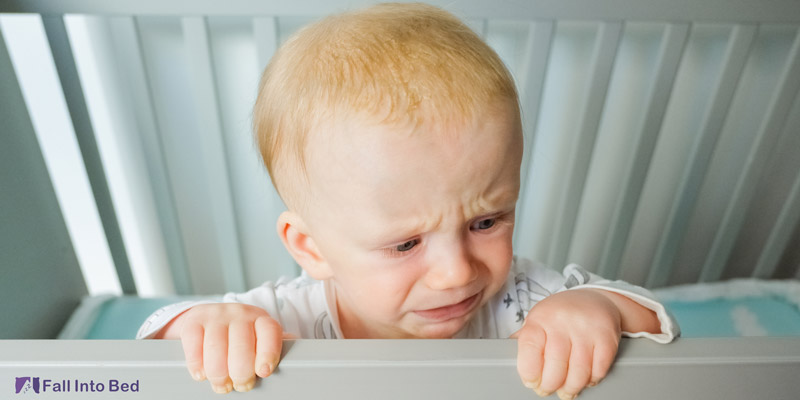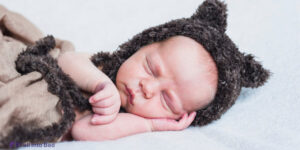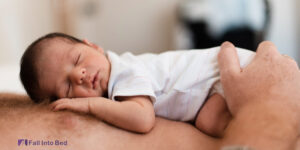One of the most challenging things you face as a parent, is putting your baby to sleep. And at a certain age, they get even fussier during bedtime. They refuse to sleep in their crib or anywhere but in your arms or your bed. Lots of factors play a role in this fussiness. In this article, we’re going to talk about the reasons why your baby doesn’t like to sleep in the crib and some tips to make it easier for you and your babies.
Reasons why your baby doesn’t sleep in the crib
Separation anxiety
As early as 6 to 8 months, your baby can develop separation anxiety and find it difficult to stay away from their parents even for a few minutes. This phenomenon can make it more challenging for the parent to put the baby to sleep in their crib, as they feel more secure and relax when they feel your presence around them while sleeping.
During this time, babies cry or become fussy when they’re in the crib or when a parent leaves the room. They may cling to parents or resist being put down. They also might wake up frequently at night and have difficulty settling back to sleep without their parents’ presence. However, the symptoms will gradually goes away by the time your baby is 18-24 months.
Separation anxiety can also be one of the reasons why your baby only sleep when they’re held in your arms.
Developmental milestones
Babies experience a number of developmental milestones during their first years of life. These milestones, while exciting and important for growth, can sometimes disrupt their sleep patterns. As an occupational therapist who works with babies, I understand how these developmental changes can affect their rest and overall well-being. Here’s a deeper look at how developmental milestones affect sleep:
- Rolling Over: Babies typically start rolling over between 4 to 6 months. This ability can be both exciting and unsettling, leading to disruptions in their sleep as they practice this skill, even in the crib.
- Crawling: Around 6 to 10 months, babies begin to crawl. This milestone can cause them to wake more frequently as they become eager to practice their new skill.
- Pulling Up and Standing: Between 8 to 12 months, babies often start pulling themselves up to stand. This can lead to frustration and sleep disruptions if they can’t figure out how to get back down.
- Walking: Typically, babies begin walking around their first birthday. The excitement and physical activity can make it harder for them to settle down at night.
- Language Development: Around 12 to 18 months, babies start to develop language skills. They may wake up to babble or practice new words, affecting their sleep.
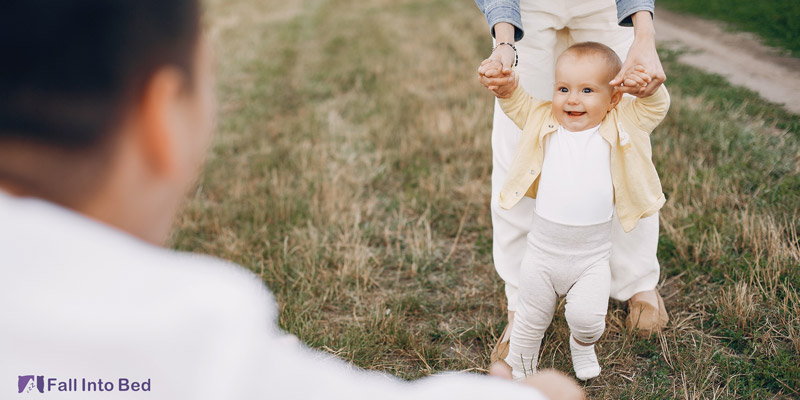
One of the things that can help babies fall asleep easier during these times is allowing plenty of time during the day for your baby to practice new skills. This can help reduce the urge to practice at night.
teething
When it comes to teething, each baby can be different. But generally, babies start to grow out their first tooth in their first year. Some of them start around month 4 and for some, it might take 11 to 12 months to get their first teeth.
Teething can affect your baby’s sleep and make it hard for them to fall back to sleep. The pain and discomfort that is caused by teething can effect your baby’s sleep can be one of the reasons why your baby might get fussy during bedtime.
Teethers and comfort items can help your baby get calmer during the night. however, it is not advised to leave these items near your baby when they’re asleep. There are teething blankets that can be a replacement for small teethers in the crib.
Frequent naps during the day
Inconsistent sleep routine can have a negative effect on their night sleep. They start resisting to sleep in the as they’re not tired enough. Establishing a consistent bedtime routine can be effective.
Tips to help your baby to sleep in the crib
1. Stablish a consistent bedtime routine
When it comes to sleep and babies, one of the most important things to consider is a consistent bedtime routine like creating a calming routine that includes activities like a warm bath, reading a book, or singing a lullaby.
Consistency helps signal to your baby that it’s time to sleep. You can also use sleep tricks that help you put your baby to sleep in less than a minute.
2. Introduce the Crib During Awake Time
Letting your baby spending more awake time in the crib helps them get more comfortable with the area. Therefore, sleeping in the crib can become easier for them.
3. Comfort items
Usually babies have a stuffed animal that is always by their side. Placing their comfort item helps them relax and ease to sleep faster. However, it’s important to know when a baby can sleep with stuffed animals. Some babies are too young for this and it creates some risks for their health.
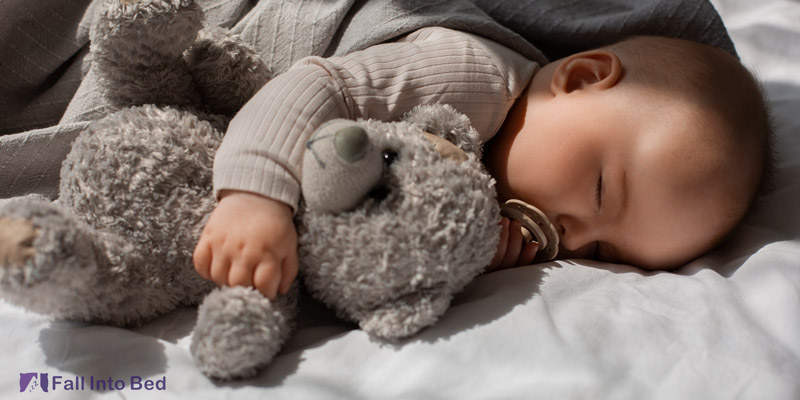
4. Use white noise machine
White noise machines or soft lullabies can create a soothing background that masks other household noises and helps your baby relax.
5. sleep positions
Putting the baby in a comfortable and safe position is essential. Especially when the baby is not strong enough to roll and change the position.
6. Address teething discomfort
if your baby is in a teething phase, and always tries to bite things to comfort their gum, you can give them a teether or other tricks for their pain.
FAQs about babies sleeping in crib
How can I make the crib more comfortable for my baby?
Use a firm mattress with a fitted sheet, ensure the room temperature is comfortable, and consider using a sleep sack or swaddle for added comfort.
How can I get my baby to sleep in the crib instead of my bed?
Gradually transitioning your baby from co-sleeping to the crib can be effective. Start with short periods in the crib, use comforting items, and maintain a consistent bedtime routine.
How long does it take for a baby to get used to sleeping in a crib?
The adjustment period varies for each baby. It can take a few days to a few weeks for your baby to become comfortable sleeping in the crib, depending on their temperament and consistency in routine.
Is it safe to use a nightlight or white noise machine in the nursery?
Yes, using a dim nightlight and a white noise machine can create a soothing environment and help mask household noises, promoting better sleep. Just make sure that any devices used are safe and placed out of reach.

